Tales from the Crypt
Milton Subotsky, an American screenwriter and producer and Max Rosenberg, an American businessman saw that there was money to be made in the British horror film market and set up Amicus Productions in the early 1960s. As it was based in Britain and made films of a similar style as the Hammer Studio (and often featuring Many actors from the same pool of talent), many people occasionally get confused as to which company released what films. To be honest, it doesn't really matter as whether a film was an Amicus or Hammer production, the audience was guaranteed a fascinating plot, some well written screenplay, stylish direction and quality acting.
A great deal of Amicus' output was of portmanteau films, which have a tenuous linking story around which several tales of terror (sometimes as many as five or six) were woven into one film. In the case of Tales from the Crypt, it was adapted from a series of EC comics from the 1950s and is generally linked with its sequel Vault of Horror so much so that the Midnite Movies distribution company in the US has released them as a double bill. As far as I'm aware, and I'm prepared to be proved wrong, Tales from the Crypt has never been released in the UK on DVD so this release by Final Cut Entertainment marks its DVD debut on these shores.
The film begins in a cave network where a group of five tourists find themselves separated from the main party and, when they try to locate them, hit a dead end. Turning off into one room which transpires to be empty, they turn to leave and are stunned to find that a door closes, locking them in. If that weren't enough, a mysterious figure in a brown woollen cloak gestures for them to sit and, one by one, tells them something about themselves, apparently what they will do once they leave.
The first tale is ...And All through the Night which involves Joanne Clayton who unceremoniously murders her husband by bashing him across the head with a poker on Christmas Eve. When she is trying to hide the body, a radio announcement warning all residents of the town that a homicidal maniac dressed as Father Christmas is on the loose slightly shakes her and when the man appears at her front door, her nerves are almost shot to shred. The worst, however, is yet to come...
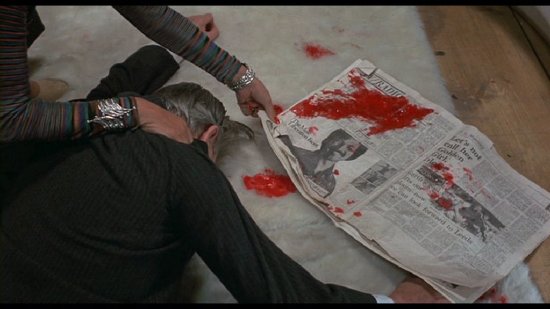
Second up is Reflection of Death in which Carl Maitland kisses his children goodnight and says goodbye to his wife on the pretext of going away on business. His real motive is a weekend away with his mistress, Susan Blake, with whom he has obviously been having a lengthy affair. Driving away through the night, Carl drifts of to sleep and wakes suddenly from a horrible dream in which the car crashed and he was killed and Susan blinded. Suddenly, he wakes up in the car which is driving fairly safely along the road but, just as in the dream, he is forced to grab the steering wheel and drive the car off the road to prevent a head-on collision. The question is: Was it a dream or a premonition?
In Poetic Justice, and upper-class pair of snobs, Edward Elliott and his son James, can't stand the elderly man who lives across the road from them. They feel that Arthur Grymsdyke, a dustbin man and widower who collects broken toys from along his route, fixes and paints them before giving them to the neighbourhood children on his birthday. Surmising that his rather shabby appearance must be indicative of Grymsdyke's house, the Elliotts are certain that it is a blight on the street that is bringing down house prices so James takes it upon himself to try and force Grymsdyke to move. Firstly, he wrecked Grymsdyke's neighbour's prize roses, knowing that Grymsdyke's dogs will be blamed and taken from him. Next on his list is a senior member of the local council who, following a discussion with the two men, decides to lay Grymsdyke off two years before he is due to retire so they can save money on his pension. Thirdly, he hosts a coffee morning for the mothers in the neighbourhood and subtly hints that Grymsdyke's motives towards their children may not be as pure as they think. The final plan involves writing a huge number of mean-spirited Valentine's Day cards to Grymsdyke informing him that he is generally hated and would be better off dead.
Wish You Were Here is one of the many adaptation of W. W. Jacobs' short story The Monkey's Paw (which was brilliantly done in The Simpsons' episode 'Treehouse of Horror II') and involves a businessman, Ralph Jason, who is facing bankruptcy. In a moment of distraction, his wife absentmindedly looks at a figurine of an old Chinese wise man which has an engraving on the bottom that says it will grant the owner three wishes. Not wanting to lose her house, Enid Jason wishes for lots of money and, almost straight away, the phone rings and her husband's solicitor and best friend wants to see him to discuss money. Ralph quickly drives off but finds himself pursued by a motorcycle and, a couple of hours later, Enid receives a visit from the solicitor who informs her that Ralph was killed in a car accident. Against his advice, she wishes that Ralph was back, just as he was the moment before the accident and, sure enough, that wish doesn't exactly go to plan either. Before the true horror of the moment can sink in, Enid uses the third and final wish with horrifying consequences.
The final segment, Blind Alleys, follows Major William Rogers, a pompous and strict ex-army man who is appointed to be the new superintendent of a home for the blind. Major Rogers wastes no time in making swingeing cuts to the residents' food and heating allowance whilst he eats fine food, drinks the best wine and spend money on art for his office. Using his Belgian Malinois to frighten the residents, very much like a concentration camp guard would use an Alsatian, Major Rogers ignores all complaints until one of the blind men dies. With some meat to use as bait for the dog, and wood and razor blades aplenty, the old men take their time in creating something truly monstrous for the sadistic Major.
When each tale has been told, the crypt keeper reveals to his five 'guests' the real reason why they are there.
I love these old portmanteau films and can watch them over and over again. Tales from the Crypt is one of the better ones and has a quality cast including Joan Collins as the murderous Joanne Clayton, Ian Hendry as the adulterous Carl Maitland, David Markham and Robin Phillips as Edward and James Elliott, Peter Cushing as Arthur Grymsdyke, Nigel Patrick as Major Rogers, Patrick Magee as the blind resident who acts as ringleader and, last but certainly not least, Sir Ralph Richardson as the crypt keeper. Therefore, the acting is uniformly solid and it really helps you to become emotionally involved in each story which is something that is quite hard to achieve when you only have about 15 minutes for each tale to be told. Although I haven't read the original comics, Milton Subotsky's screenplay is extremely good and allows the actors to show their stuff. Although this isn't up there with the best films that Freddie Francis directed, it is further proof, should any be needed, that he really was a great filmmaker who knew how to build tension and deliver a good jump to the audience.
Even now, several of the stories are astonishing in the level of sadism and cruelty involved. Certainly, the hate campaign carried out against Grymsdyke in Poetic Justice is unbelievably cruel and one can't help but feel for the kindly gentleman who is persecuted by his snobbish neighbours. Similarly, Blind Alleys, is fairly unrelenting in its sadism, with Maj Rogers as an unbelievably cruel tyrant and, although you may feel that he deserves his comeuppance, such an ingeniously worked out and executed plan wouldn't wouldn't have been out of place in one of the Saw movies! These two are probably the strongest of the five, with ...And All Through The House and Reflection of Death as probably the weakest tales. As such, it was a good decision to put those two first so that the film finishes strongly before the crypt keeper's final reveal.
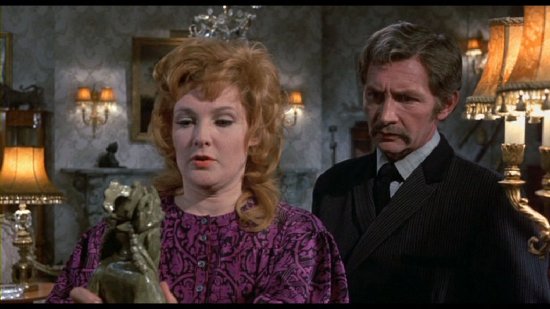
The Disc
The Picture
This digitally remastered release has an extremely good transfer that holds up extremely well against the R1 Midnight Movies release as the quality belies the film's age -- it's nearly 40 years old -- and the edges looked crisp, the colours bright and contrast levels are on the whole very good so there is only the normal lack of definition in the lowlight scenes.
Any film helmed by Freddie Francis should look as if the man in control and the man behind the lens knew what they were doing and Tales from the Crypt is no exception and the cinematography is extremely good. The hairstyles and clothes scream early 1970s and Joan Collins' outfit is a perfect illustration of this with a jacket with big shoulder pads under her bouffant perm!
Sadly, I couldn't see the whole screen as the disc supplied for review had a time bar (and not a small one either) at the top of the screen for the duration.
The Sound
The Dolby Digital 2.0 Mono track is nice and clear, presenting the dialogue extremely well and the understated score, by Douglas Gamley, does a great job at underscoring the more suspenseful and emotional aspects of the film.
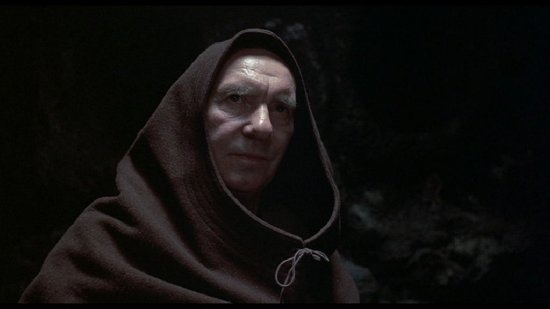
Final Thoughts
As I said in the introduction, I love the portmanteau films from Amicus and Hammer and could watch movies like this, Dr Terror's House of Horrors, Asylum and And Now the Screaming Starts just about any time. They will never make my top ten horror films of all time but they are extremely enjoyable and well crafted films that have that degree of playfulness that comes with being originally written as a set of stories for a comic book.
Although this release has no extra features, it's hard to imagine what supplementary material they could get, aside from perhaps a commentary with someone like Kim Newman or perhaps one of the television episodes or even Vault of Horror on a second disc. It is great to see this film finally getting a UK DVD release and, with the quality of the stories and the fine AV package, this DVD is well worth buying if you don't already own the Region 1 release.
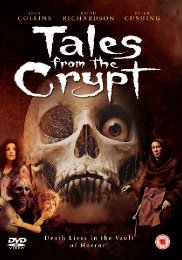

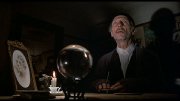

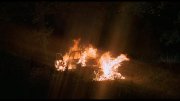
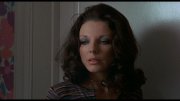
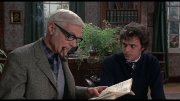
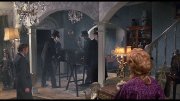
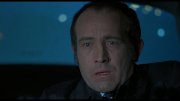
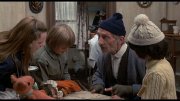
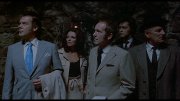

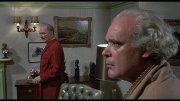
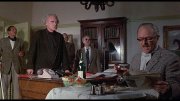



































Your Opinions and Comments
Be the first to post a comment!